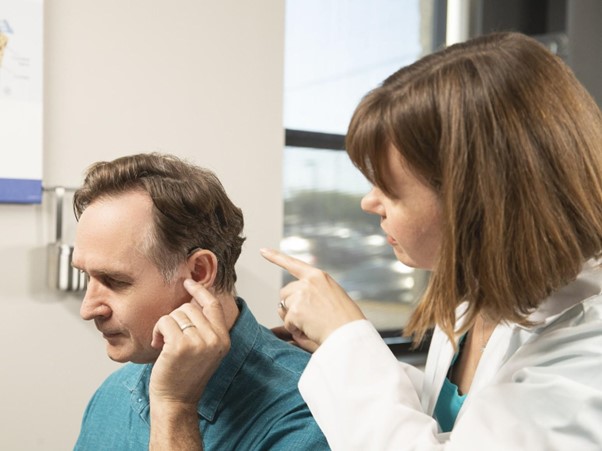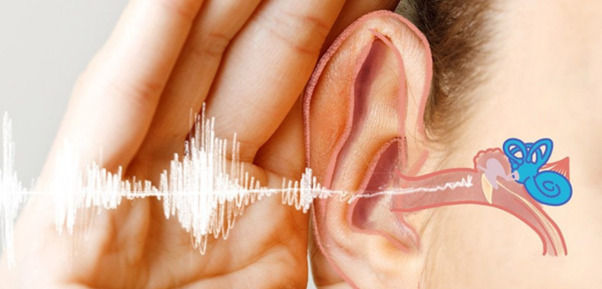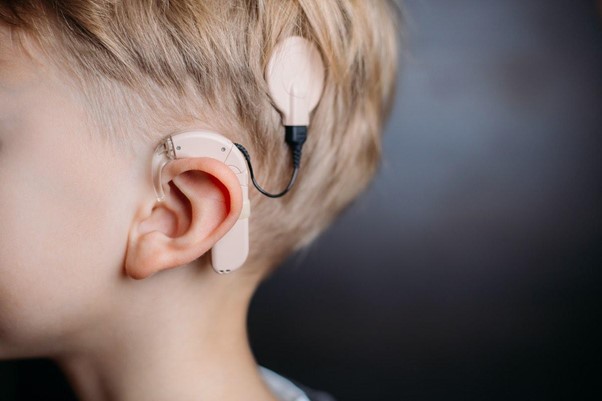
Hearing loss can significantly impact the quality of life, affecting communication, social interactions, and overall well-being. While some hearing issues may be temporary or minor, others require the expertise of an Ear, Nose, and Throat (ENT) specialist.
Knowing when to seek the help of an ENT specialist for hearing concerns can make a difference in preventing further damage and improving life quality. This article will explore the indicators that necessitate a visit to an ENT specialist and the solutions they can offer.
Understanding Hearing Loss
Hearing loss can manifest in various forms – from difficulty understanding conversations in noisy environments to the complete inability to hear sounds. The causes are equally diverse, including but not limited to, aging, noise exposure, infections, genetic factors, and structural problems within the ear. Hearing loss can be categorized as:
Conductive Hearing Loss: Where the problem lies in the outer or middle ear.
Sensorineural Hearing Loss: Resulting from damage to the inner ear or the auditory nerve.
Mixed Hearing Loss: A combination of conductive and sensorineural issues.
Common Symptoms Indicating Hearing Issues:
- Muffled hearing or difficulty understanding speech.
- Frequently asking others to speak more slowly, clearly, or loudly.
- Needing to turn up the volume on television or radio.
- Withdrawal from conversations or avoidance of some social settings.
- Ringing, buzzing, or hissing noises in the ears, are known as tinnitus.
- Vertigo or balance issues may indicate an inner ear problem.
When to Consult an ENT Specialist
Persistent Symptoms
If you experience persistent hearing loss or any of the symptoms mentioned above for more than a week, it’s crucial to consult an ENT specialist. Early diagnosis can lead to more effective treatment.

Sudden Hearing Loss
Sudden hearing loss in one or both ears may be a medical emergency and should be evaluated by an ENT specialist immediately. The sooner treatment begins, the better the chances of recovery.
After an Upper Respiratory Infection
Sometimes, a severe cold or flu can lead to fluid build-up or ear infections that affect hearing. If hearing issues persist after the infection clears, it’s advisable to seek an ENT consultation.
Post Traumatic Hearing Loss
If you’ve suffered head trauma or sudden changes in air pressure (barotrauma), and notice a change in your hearing, an ENT specialist can assess any damage to your ear structures.
Accompanying Symptoms
Hearing loss associated with pain, discharge from the ear, dizziness, or tinnitus should be evaluated by an ENT specialist to rule out infections, growths, or other serious conditions.
Hearing Loss Impacting Daily Life
When hearing loss begins to affect your ability to carry out daily activities, and engage in conversations, or if it’s impacting your work, it’s time to see an ENT specialist.

Changes in Hearing
Gradual hearing loss that becomes more pronounced over time is a clear indicator to seek the expertise of an ENT.
What Can an ENT Specialist Do for You?
An ENT specialist is trained to diagnose, manage, and treat disorders of the ear, nose, and throat, including hearing issues. Here’s how they can help:
Comprehensive Auditory Assessments
ENT specialists can conduct or arrange for comprehensive hearing tests to determine the type and extent of hearing loss.
Medical Evaluation
They can evaluate whether there is a medical or structural cause for the hearing loss, such as earwax buildup, infection, or eardrum perforation, and provide appropriate treatment.
Hearing Aids and Assistive Devices
For those who may benefit from hearing aids, ENT specialists can recommend devices and make referrals to audiologists for fitting and fine-tuning.

Surgical Options
If the hearing loss is due to a structural problem, such as otosclerosis or damage from chronic ear infections, an ENT specialist can determine if surgical intervention is possible.
Management of Ear Diseases
Conditions such as Meniere’s disease, acoustic neuromas, or chronic ear infections require specialized management, which an ENT is qualified to provide.
Tinnitus Evaluation and Management
ENT specialists can offer solutions for managing tinnitus, which often accompanies hearing loss.
Rehabilitation and Therapy
They can suggest rehabilitation programs and therapies to improve hearing and adapt to hearing loss.
Follow-Up Care
ENT specialists will provide the necessary follow-up care, monitoring hearing over time and adjusting treatment plans as needed.
Conclusion
Hearing concerns should never be ignored, and while primary care physicians can handle basic ear-related issues, an ENT specialist has the specific expertise needed for more complex problems.
If you’re experiencing any form of hearing loss or related symptoms, consulting with an ENT specialist can provide you with a clear diagnosis, treatment options, and the best possible outcome for your condition.
Remember, hearing is a vital part of connecting with the world around you, and taking the right steps toward addressing any issues can enhance your quality of life. Don’t hesitate to contact Ear Clinic Singapore to schedule an appointment with an experienced ear doctor if you have any concerns regarding your hearing health.